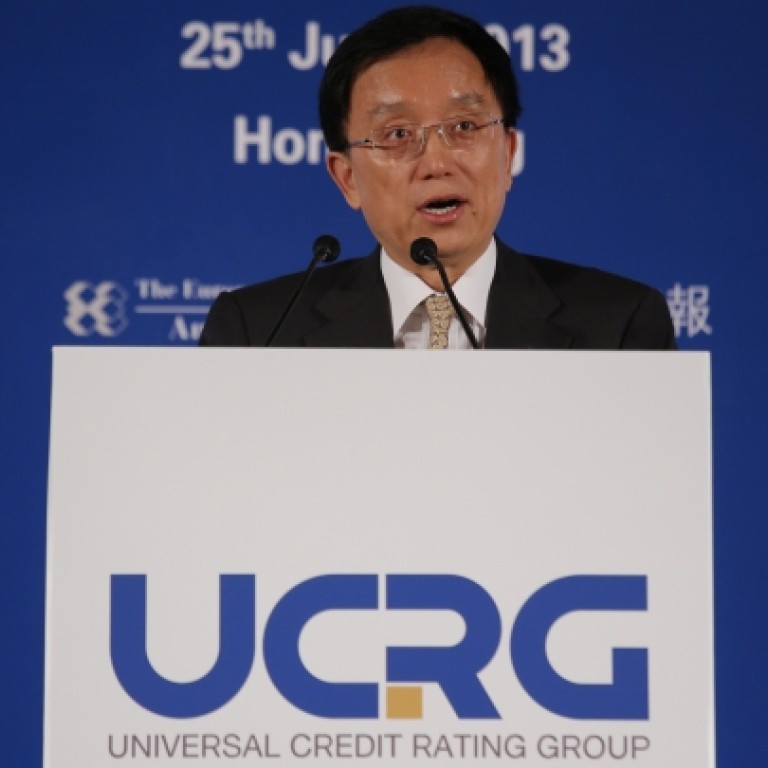
New credit rating agency will bring needed competition
Donald Gasper hopes the HK-based group will raise industry standards
The opening in Hong Kong last week of Universal Credit Rating Group, a new ratings agency with Chinese, Russian and US partners, comes at a time when confidence in the dominant US-based agencies is at a low point.
Ratings agencies play an essential role in today's globalised financial sector. Their primary function is to assess what is safe to buy and what is not. Their researchers analyse anybody or anything that borrows money, whether that is a mortgage borrower, a company, a city or a country.
Sovereign ratings are particularly crucial. They assess a country's debt and its ability and willingness to repay it. A downgrading by even one point could have serious repercussions; a country, if downgraded, has to pay more to borrow money on the international markets. This means that less is available for expenditure on vital services such as roads and schools.
Sovereign downgrades have affected a number of European countries since the financial crisis that started in 2008.
Ever since the crisis broke out, critics of the big three US agencies - Moody's, Standard & Poor's and Fitch - have questioned their objectivity and pointed to their role in actually contributing to the meltdown. In 2011, the US Financial Crisis Inquiry Commission concluded: "This crisis could not have happened without the rating agencies."
Now damning new evidence has come to light which bears this conclusion out and shows that things are even worse than people had suspected. An upcoming issue of magazine cites a new trove of embarrassing documents, unearthed by the law firm Robbins Geller Rudman & Dowd in the course of lawsuits brought by institutional plaintiffs against Moody's and Standard & Poor's.
As a result of these documents, the magazine claims, we now know that these two companies "have for many years been shameless tools for the banks, willing to give just about everything a high rating in exchange for cash … In incriminating e-mail after incriminating e-mail, executives and analysts from these companies are caught admitting their entire business model is crooked."
Minutes from a 2007 conference of Standard & Poor's executives, for example, show that the raters knew they were pulling many figures out of thin air. In a particularly revealing comment, one executive confessed that it was well nigh impossible to accurately rate a synthetic derivative loan deal with underlying assets in China and Russia. In such cases, local knowledge is essential.
Earlier this month, addressing an international conference in Edinburgh, Bertelsmann Foundation executive director Annette Heuser identified the chief weaknesses of the existing system. First, there is little competition in the sector, so that agencies have little incentive to improve. Moreover, the emerging economies are excluded from the current ratings regime, leading to the perception that it is parochial and often biased.
Second, customers pay for their own ratings, creating a conflict of interest.
Third, there is very little transparency, and the public doesn't know exactly how these firms formulate their ratings.
While she was arguing in support of the creation of an international non-profit credit rating agency, Heuser's arguments also reinforce the case for an agency like Universal Credit Rating Group.
It may not make an immediate dent on the dominance of the top three agencies, but at least it will add to the competition and in this way may pressure them to improve their service. And Hong Kong, being one of the world's three major financial markets and known for its rule of law and free flow of information, is an ideal place for it to be based.

